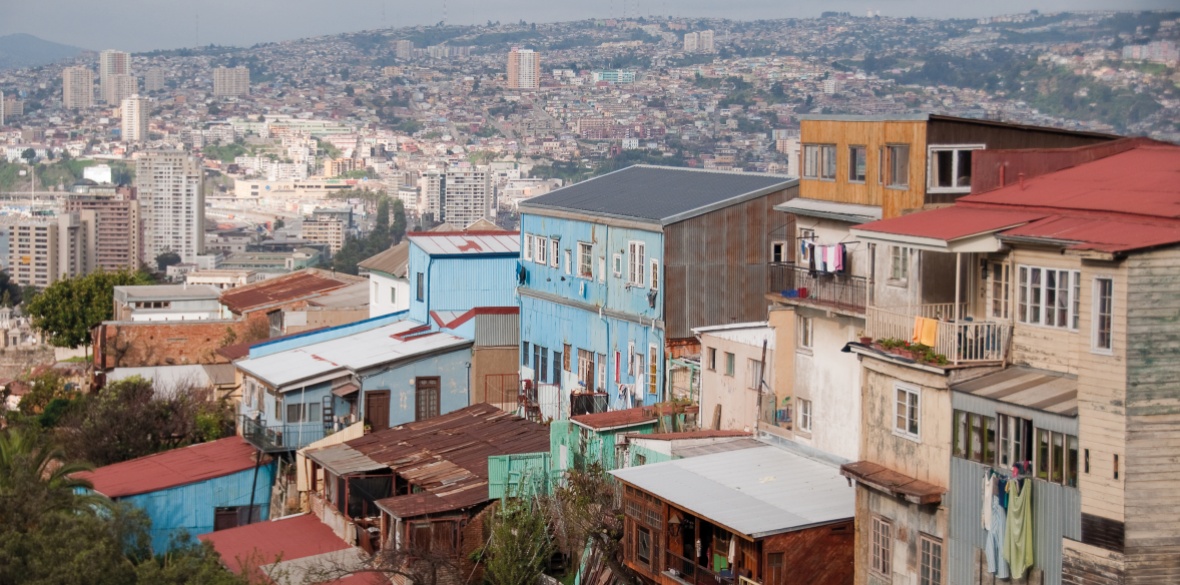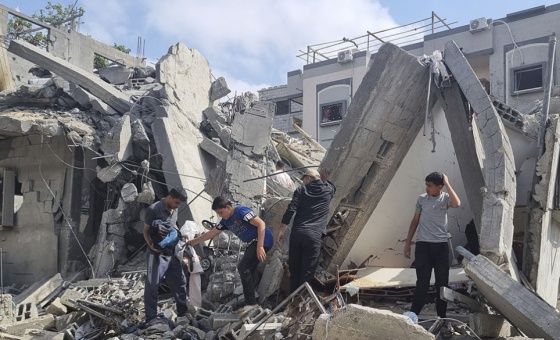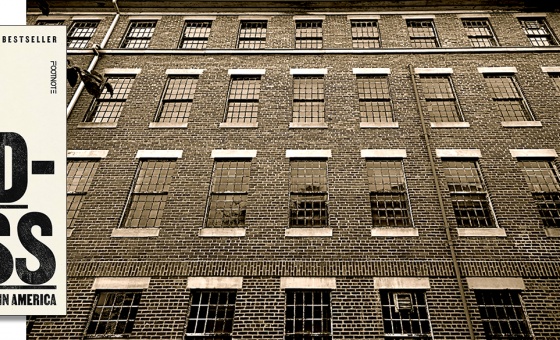This is the last article you can read this month
You can read more article this month
You can read more articles this month
Sorry your limit is up for this month
Reset on:
Please help support the Morning Star by subscribing here
IT HAS been more than five years since the hills of San Antonio began to be populated, giving rise, in short, to what is today the largest land seizure in Chile. It is estimated that 4,000 families have settled in this area over the last five years.
In August 2023 the Court of Appeals of Valparaiso (Chile) ordered the eviction of 254 hectares of the Bellavista Sector. A final ruling this month by the Supreme Court has confirmed the eviction of all the families and set a six-month deadline to carry it out.
The authorities in the area, the Carabineros (federal police), have stated that it is impossible to carry out the eviction. We are not living in the times of the military dictatorship, which viciously and violently evicted a thousand families from the Villa San Luis de Las Condes housing estate, who had acquired their flats by all the regulations available at the time.
An eviction in San Antonio today would only be possible by perpetrating an outrage hitherto unknown in Chile’s urban history. But this is what is planned.
Last year, the Chilean parliament passed a “law of usurpations,” authorising the eviction of families living in so-called “camps” and even punishing them with imprisonment, the latter provision eliminated only thanks to a presidential veto.
This new law is analogous to the one passed last century, during the mandate of president Gonzalez Videla, which meant sending thousands of trade union and political leaders to a concentration camp in Pisagua, erasing 20,000 citizens from the electoral registers and exonerating a similar number of civil servants from the civil service.
Never in the history of Chile have the “encampments,” where people build ramshackle dwellings on common land and these settlements become permanent and accepted until developers decide to land-grab, been judicially prohibited. Never.
A large part of the territory that today makes up the communes of San Miguel and La Granja had their origins in land seizures that later, thanks to their organisation and the support of committed professionals, were all, without exception, transformed into legal settlements. This happened under governments of the centre, left and right.
Since the dictatorship until now, a policy has been imposed that ignores the demands of the camps, in the sense of transforming them into normal settlements and only offers them the option to opt for a flat located elsewhere. When some families from the camps accept this offer, the same day they move out, they are replaced by new families who occupy the abandoned sites.
In this way, the camps perpetuate themselves. They are maintained for years, with one improvement or another, and courted at election campaign time by politicians of various political persuasions.
I have discussed this issue on several occasions with Carlos Montes, the current housing minister, who invariably replies: “Remember that today’s camps are not like yesterday’s.”
According to the article published in El Mercurio, Montes insists on his point of view. This is a completed land registry that is being processed.
“Several of these families already have other homes, there are different realities that are being worked on,” he claims. The minister does not say a word of understanding about an indisputable reality.
It is true: today we lack the social conscience and fraternity that we had yesterday, after more than 50 years of promoting individualism and consumerism, introduced by the dictatorship and scarcely modified by subsequent regimes.
But, by golly, I know that the vast majority of today’s camps, like many irregular settlements, respond to the legitimate need of every family to have a roof over their heads, which is denied to them by current housing policies.
Months ago, we visited San Antonio, together with Constanza Lizana, mayor of the area, and our colleagues Anita Sugranies and Alfredo Rodriguez.
We were welcomed by an exceptional leader: Gabriela Almuna, president of the Las Lomas Committee, with whom we toured the sector. The work they are doing is impressive, given the difficult situation in which they live.
We visited a social centre built by the women themselves, where they organise social, artistic and cultural events. They even run literacy courses. Gabriela denies that there is a single family in the area that is not in real need of housing. She admits that there may be some areas in the area dominated by drug traffickers, but this is far from reflecting the reality of the whole area.
Disqualifying honourable people like Gabriela is an unfair insult.
Bearing in mind the commitments made in the Emergency Housing Plan by the minister of housing himself regarding the solution to the camps, I have published several columns in recent days regarding the inaction on this issue, including an open letter sent to Montes.
I view his attitude towards the eviction of the 4,000 families living in the San Antonio shanty towns with a high degree of concern.
When we launched the candidacy of Gabriel Boric for the presidency of the republic, I handed Boric a document endorsing his candidacy, signed by 1,016 architects. A historic event.
However, let me now make it clear that, in the event of an attempt to carry out the eviction in San Antonio, I, with my 95 years, will be the first to be present at the site, trying to prevent the consummation of a tragedy, and I am certain that the majority of those who signed this endorsement will accompany me.
Miguel Lawner is a winner of Chile’s National Architecture Prize. He was executive director of the Urban Improvement Corporation in the government of Salvador Allende and lectured at Chilean and foreign universities.











